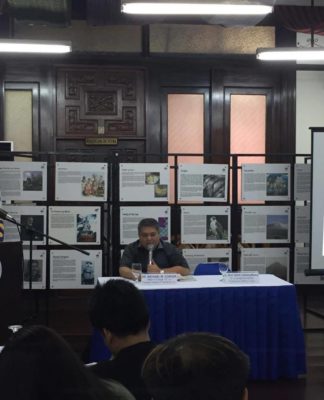BAR EXAM results may be released earlier than the usual following the proposal of a former UST law dean to make the first part a multiple-choice test.
Civil Law Dean Nilo Divina said Associate Justice Roberto Abad made the proposal to better “filter out” only those capable of passing the bar exams.
“I am in favor of this measure since it screens those who have prepared well for the exam,” Divina said.
Abad’s proposal will divide the bar exam into two phases. The first part which will account for 60 percent of the exam is the multiple-choice test. It will be followed by the essay part, which rounds up the remaining 40 percent. If one does not pass the first phase, he or she will not be allowed to take the second part.
Divina said the first phase would cover the codal provisions which “every lawyer should know.”
He added that Abad’s suggestion could eliminate students’ anxiety on whether they passed the bar exam or not since multiple-choice exams can be evaluated by a counting machine.
“This system [multiple choice] has been done in the US and it saves a lot of time since it takes months to check [an examinee’s] papers,” Divina added.
The bar exams is general essay type although there are also few multiple-choice questions. The test is composed of eight subjects: political law, remedial law, taxation, criminal law, civil law, mercantile law, labor law, and legal ethics and practical exercises.
Abad said the proposed multiple-choice questions (MCQ) as the first part of the 2011 Bar Examinations would not only test the examinees’ knowledge on codal provision, but also their comprehension and analysis.
“The advantages of MCQ exams include the objective correction of the papers since every question has one definite answer, encouragement of the mastery of subject because of the difficulty of distinguishing between a correct and a nearly correct answer, and the employment of a wider scope of topics since the examiner can ask as many as 100 questions in an hour and a half exam, among others,” Abad said in a statement.
Civil Law freshman Margielyn Asilo is in favor of the proposal, saying it would be easier than an all-essay exam.
“It’s better. The exams will be easier,” Asilo said.
Sophomore Bernadette Balao said the proposed two phases of the bar exam should be given equal weight.
“The memorization of the codal provision [first phase] is an integral part of the exam, but you cannot just measure the aptitude of the person on his ability to memorize the codal provisions. It can be easily memorized but the ability to reason out matters,” Balao said. Darenn G. Rodriguez
















